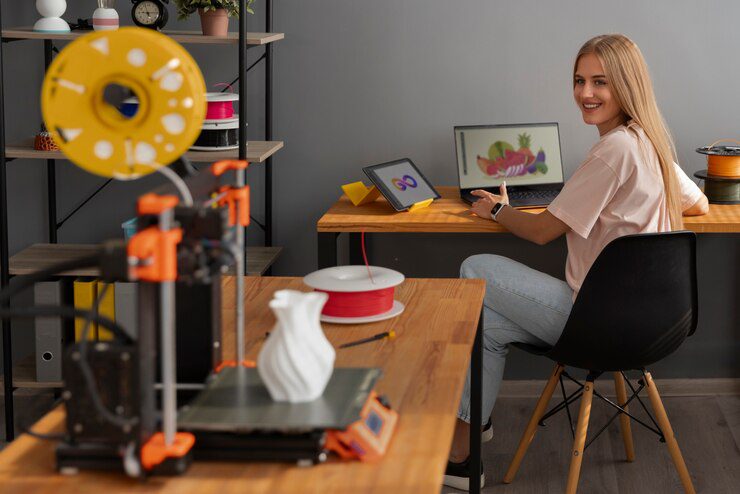The rise of automation is a hot topic, with headlines screaming about robots stealing our jobs. Is this sci-fi nightmare becoming a reality? Not quite. While automation undoubtedly impacts the job market, it’s a more complex story than just humans vs. machines. Let’s delve into the impact of automation on jobs and explore what the future of work holds.
Automation: A Double-Edged Sword
Automation involves using technology to carry out tasks that were traditionally performed by humans. From self-driving cars to AI-powered customer service chatbots, automation is transforming industries. Here’s a look at its double-edged sword effect:
Increased Efficiency and Productivity: Automation can streamline processes, reduce errors, and boost productivity. Imagine factories cranking out products 24/7 without human intervention. This translates to lower costs and potentially more competitive prices for consumers.
Job Displacement: Certain jobs, particularly those involving repetitive tasks, are susceptible to automation. Manufacturing assembly lines and data entry jobs are prime examples. This can lead to unemployment and economic hardship for displaced workers.
New Job Opportunities: While some jobs disappear, automation also creates new ones. Think robotics engineers, artificial intelligence specialists, and data analysts. These roles require skills in developing, managing, and maintaining automated systems.
The Automation Tightrope: Who’s Most at Risk?
The impact of automation isn’t evenly distributed across the job market. Here’s a table outlining the most vulnerable sectors:
| Sector | Vulnerability to Automation | Reason |
| Manufacturing | High | Many manufacturing jobs consist of repetitive tasks that can be easily automated. |
| Transportation | Medium | Self-driving vehicles and automated logistics pose a threat to truck drivers and delivery personnel. |
| Retail | Medium | Cashier jobs and other customer service roles could be replaced by self-checkout kiosks and AI-powered chatbots. |
| Administrative Support | Medium | Data entry, bookkeeping, and basic customer service tasks are ripe for automation. |
| Healthcare | Low | While automation will impact routine tasks, human interaction, and empathy remain crucial in healthcare. |
| Education | Low | Teachers cannot be replaced by robots – their role in imparting knowledge and fostering social-emotional development is irreplaceable. |
The Future of Work: Adapting to a Changing Landscape
The future of work will likely involve a human-machine collaboration. Here’s how we can prepare:
Lifelong Learning: The ability to learn new skills and adapt to evolving job demands will be critical. Invest in continuous learning and upskilling to stay relevant in the automated workplace.
Focus on Soft Skills: Automation can’t replicate human creativity, critical thinking, problem-solving, and communication skills. These soft skills will be increasingly valuable.
Embrace Technology: Don’t shy away from technology. Learn to work alongside AI and automation tools to improve your efficiency and effectiveness.
Policy and Education: Governments and educational institutions need to prepare for the impact of automation. Policies focused on retraining displaced workers and revamping education systems are necessary.
The Human Touch: Why We Still Matter
While automation is transforming the job market, it’s important to remember that humans are irreplaceable. Here’s why:
Creativity and Innovation: Machines excel at following instructions, but humans are the creators and innovators. Our ability to think outside the box will be crucial for solving complex problems and driving progress.
Social Intelligence: Building relationships, fostering trust, and navigating complex social situations are uniquely human skills. These are essential in fields like healthcare, education, and leadership.
Empathy and Emotional Intelligence: Human connection plays a vital role in many professions. From providing emotional support to patients to leading and motivating teams, empathy is a skill robots can’t replicate.
The Final Word: A Human-Centric Approach to Automation
Automation is here to stay, but it doesn’t have to be a job killer. By embracing lifelong learning, focusing on soft skills, and investing in education and retraining programs, we can create a future where humans and machines work together for a more prosperous and fulfilling world. The key is to harness the power of automation while ensuring a human-centric approach.







